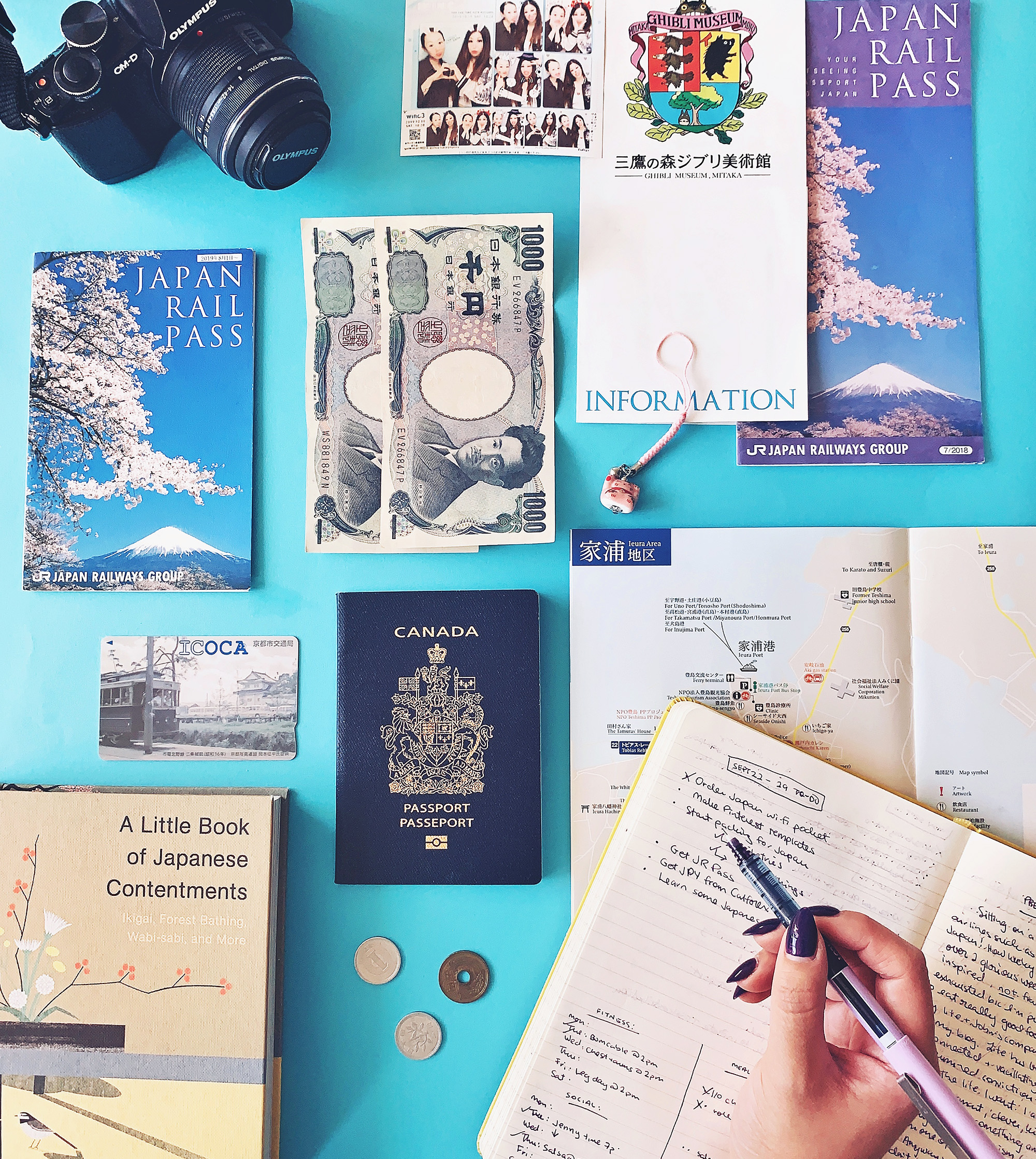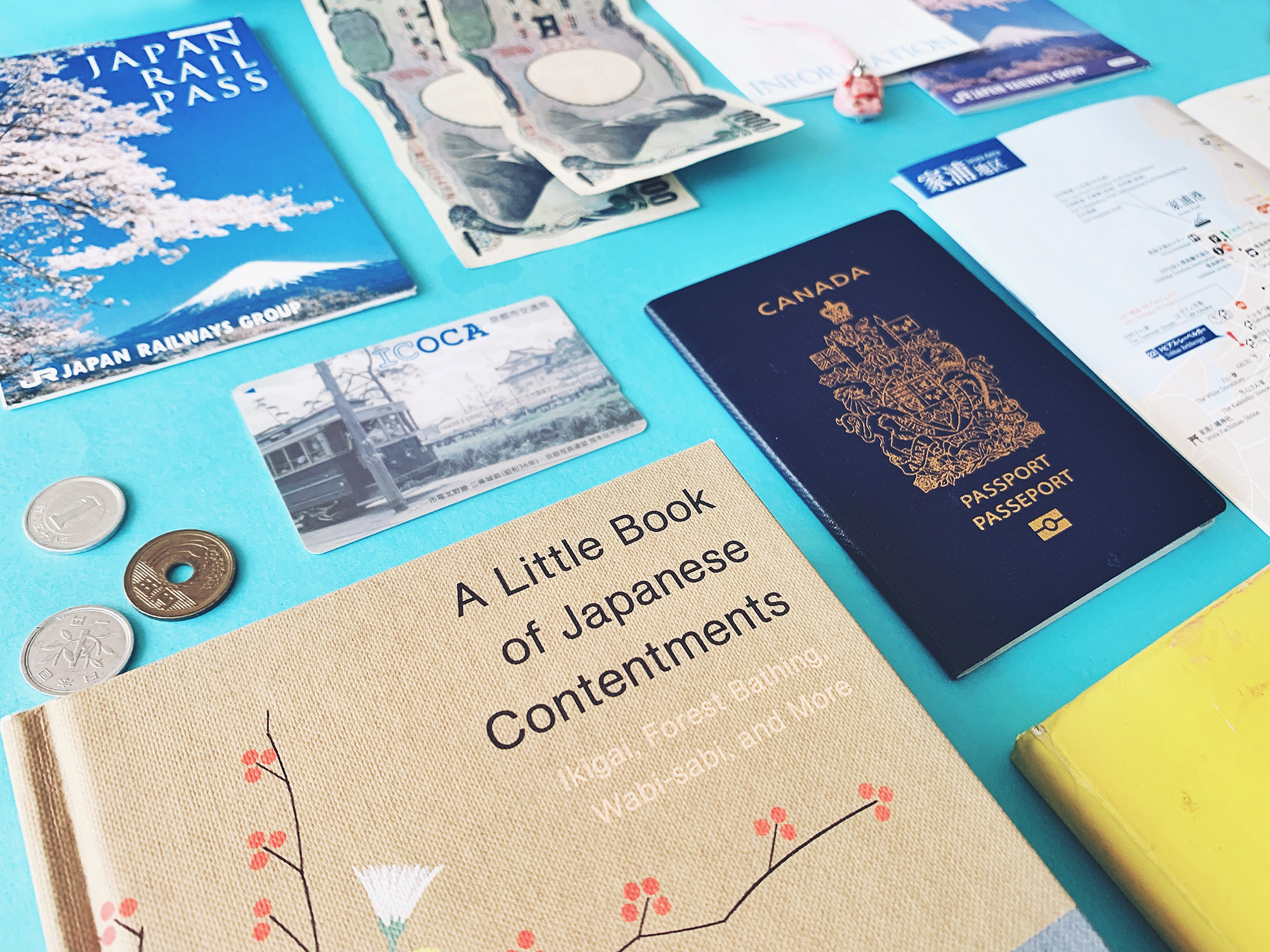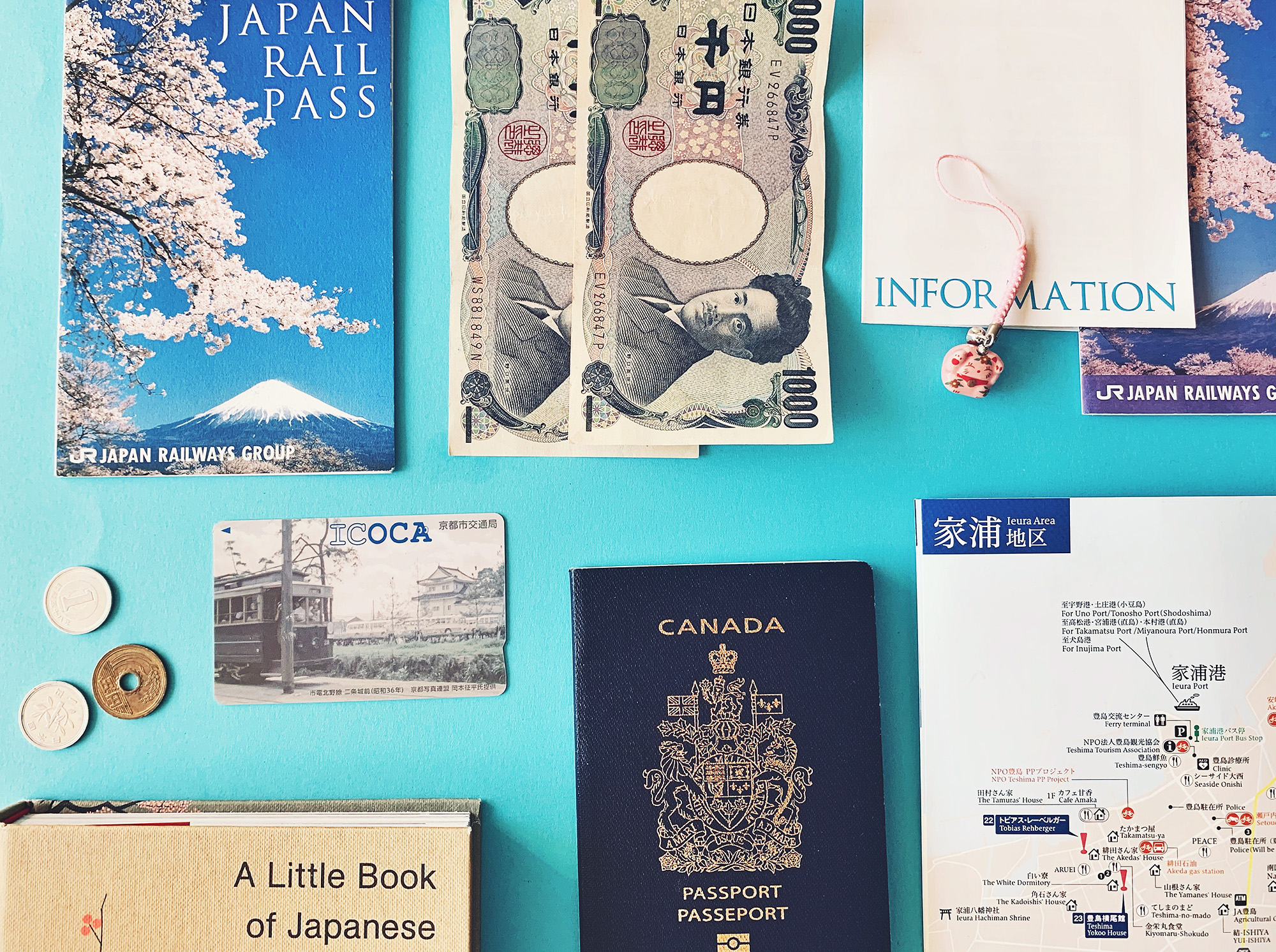
Shut up, I’m not back home from Japan. You’re back.
Coming home from a trip abroad is always bittersweet. I dread the familiar weight of responsibilities of day-to-day adulting but at the same time, there’s nothing I want more than to sleep in my own bed.
As amazing as Japan was with its Michelin star-rated food scene, high tech toilets and rich cultural traditions, it’s not surprising that I’m already scouring the internet for flights back to the Land of the Rising Sun for sakura season. And next time, I’ll be even more prepared having made that first trip.
RELATED READING:
➳ How To Plan For The Most Culturally Authentic Trip To Japan
➳ 6 Tips From a Travel Addict to Plan the Perfect Holiday
➳ Helpful Tips for Packing A Carry-On Suitcase
Before you jet off to Japan, here are some essential tips that every first-timer should know so they can be ahead of the game:
Learn the language
Unlike many other countries I’ve visited in the past, I encountered very few locals in Japan who spoke English. When my limited Japanese would fail me, I’d resort to using my phone as an intermediary – utilizing Google Translate, pulling up photos of products I was searching for or showing where I was trying to get to on Google Maps.
While you’d be able to cobble along just fine most of the time (servers are accustomed to tourists grunting and pointing at items on menus like prehistoric cavemen) it’s definitely a good idea to commit some essential Japanese words to memory.
Here are some other words that may come in handy:
Konnichiwa = Hello/Good day
Ohayō gozaimasu = Good morning
Konbawa = Good evening
Gomennasai = Sorry (formal)
Sumimasen = Excuse me (formal)
Onegai shimasu = Please
Hai = Yes
iie = No
Sugoi = Amazing/Cool
Kawaii = Cute
The most important phrase to learn (and the one I used so often that it was like breathing) is Arigatō gozaimus. Accompanied by a little bow, it is a formal way of saying “thank you”.

rent a pocket wifi
“Hi, my name is Teri and pocket wi-fi saved my LIFE!” While I love the idea of completely disconnecting on a holiday, after using pocket wi-fi for the first time for Japan I am an unabashed convert. I preferred it to a SIM card because I could share it with other people as well as use it with my laptop.
It was invaluable to properly navigating the extensive transit system as well as finding restaurants. They all seemed to be f**king hidden in a basement or on the 5th floor of an office building! Pro Tip: If/When you can’t find a restaurant, Google images of the exterior.
Specific to Japan, I rented a standard pocket wi-fi from Global Advanced Communications for about $70 CAD for 17 days. Arrange to have it delivered for pick-up at the airport or your accommodations then simply mail it back at the airport in the envelope it comes with (Note: Look for the red mailboxes BEFORE you go through security). Easy peasy!
buy a JR Pass
I like my train the way I like my men – Strong, reliable and ON TIME. The train network in Japan is all of that and more. They’re so dedicated to timeliness that one time when a train left early by 25 seconds, the train company issued a public apology! Hubba hubba.
Designed to encourage travel and tourism throughout Japan, the Japan Rail Pass, also known as the JR Pass, was intended solely for the use of overseas visitors. A cost-effective means of long distance travel valid for the major forms of transportation offered by the JR Group, it’s 10 – 20% cheaper to buy it before you arrive in Japan, whether online or at a travel agency near you.
The JR Pass costs quite the pretty penny but it will most likely result in massive savings both monetary and time-wise. While the JR Rail Pass calculator initially indicated that the pass wouldn’t be beneficial to me, I didn’t anticipate all the random times I actually ended up using it. Plus it was just more convenient to show my pass than having to purchase separate tickets for each trip.
bring plenty of cash
There’s always that one friend (me) who always carries cash (just in case!) and ends up having to pay for all the drinks because your group wandered into a cash-only bar. For the most part, Japan is one big cash-only bar.
As advanced as the country is as a whole, it’s also very traditional with an abundance of tiny, family-owned establishments where dollar bills (yen bills?) do the talking. Have no fear though, most accommodations and higher-end restaurants accept card unless stated otherwise.
Yen bills come in denominations of 1,000, 2,000 (very rare), 5,000 and 10,000 yen. Break larger bills when you can for coins since you’ll never know when you need change for public transit.

advance tickets and reservations
Nothing makes my soul die more than returning from a trip only to realize that I missed out on a one-in-a-lifetime experience or a drool-worthy restaurant due to poor planning. A little forethought can save you a lot of FOMO.
+ Exhibits + Museums: Tickets for the Ghibli museum are notoriously difficult to snag and require 3 months advance purchase. You have to reserve a spot to the innovative and verrryyy popular digital exhibition teamLab Borderless 2 months prior to going. If you’re planning a trip to the art islands like Naoshima and Teshima, it’s a good idea to reserve spots at their busy museums.
+ Restaurants: On the first of the month prior to arrival, I made a reservation (via email) for omakase at the Anthony Bourdain-approved Yasuda in Tokyo. Not all establishments have this requirement but if they do, reserve online or email your accommodations and ask if they can call on your behalf.
+ Mario Go-Karting: This popular activity doubles as a sight-seeing tour that you can do in several of Japan’s major cities. If you want to get behind the wheel, make sure you get your International Driver’s License.
The Japanese are great at organization and efficiency which is why planning ahead of time is crucial. The best part is not having to worry about waiting in lines or missing out!
brush up on your etiquette
Japan is a very civilized country. While there’s no need to go to finishing school, polishing up Japanese customs may help you avoid looking like a fool unknowingly committing a faux pas.
Imagine you pick up a delicious pastry in the morning while off to explore Shibuya but you’re getting a lot of dirty looks. Well, Japanese people are much too nice to give you dirty looks but they may scold you. In other parts of the world, eating and walking is fine but in Japan it’s frowned upon as they are trying to limit litter from food packaging.
Other no-nos will be more obvious to Westerners like talking obnoxiously on your phone in public but others are more culturally specific to Japan. Slurping ramen is considered a compliment to the chef. Do NOT stick your chopsticks in to your rice! While tipping may be your way of showing your appreciation, it is not customary in Japan so servers will come chasing after you with your change.
Now you are one step closer to being fully prepared for a trip to Japan! For more tips for how to plan an authentic trip to Japan, check out this post.
Keep your stalking game strong and follow me @teriaki if you aren’t already!








0 Comments